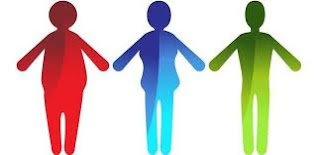Do you yo-yo with your weight after stroke? Many stroke survivors, sooner or later, are bored of being homebodies and venture out with a caregiver, or not, to find some excitement at the pharmacy or grocery store. I ventured out, albeit not alone, to even find some thrill at the doctor's office. But alas, there weren't any thrills anywhere and I went home and ate out of boredom, the one thing I shouldn't have done.
Now I follow My Fitness Pal app downloaded on the phone, for the past 90 days, once again, to take off those unsightly pounds. I lost 19 pounds so far, with a "decade and a half" (15 lbs) more to go, but I am at a plateau, not being able to really exercise like I used to in those sweat-generating sessions. I bought an exercise bike that my son and his girlfriend are supposed to put together after I sell the chair and cabinet that's blocking the space. But I digress.
Anyway, until then, when I finally have the bike assembled, the Fitness Pal diet goes on, and whether you like reality or not, it's a fact that stroke and excess body fat are a bad combination.
I can tell when I am heavier. I have a harder time standing up from the low couch, usually achieving it by the second or third time. When I was thinner, the first time. Thus, you may get to a point in Rehab in the Overweight range or higher where, try as you might, you just can't do the exercises fully, getting breathless or overly fatigued, or both as I did.
To get whether you roughly (the operative word) weigh too much, Johnny Wright, former Head of Outreach at ReNew Bariatrics, shared this information with me. (See the chart below).
In order to determine your Body Mass Index, which is the popular way to tell if you are overweight:
Take how much you weigh and divide it by your height in inches times 2. This feature is called squaring, in this case your height, and multiply the total by 703.
Example: If I weighed 140 lbs. and divided it by my inches which is 65 inches times 2, would read:
140 = .033 .033 x 703 = 23.2 which makes me in the Normal Weight range.
65x65
My height is the same, my weight a little bit higher, so the Normal Weight range is what I'm seeking.
But there are exceptions, so take these numbers in perspective:
If you are a body builder, muscle is more dense than fat and is far better and healthier than body fat.
If you have heart disease, diabetes, or any disorder in your gene pool that is listed in the chart, it may be better if you try for the Normal Weight range.
If you are at the age of 60 or above, your metabolism slows down as you age, so take that into account.
IF YOUR DOCTOR TELLS YOU DIFFERENTLY, FOLLOW THE DOCTOR'S PLANS.
If you're already in the Normal Weight range or lower, congratulations. And if you're trying to get into the Normal Weight range, kudos for trying.
Now I follow My Fitness Pal app downloaded on the phone, for the past 90 days, once again, to take off those unsightly pounds. I lost 19 pounds so far, with a "decade and a half" (15 lbs) more to go, but I am at a plateau, not being able to really exercise like I used to in those sweat-generating sessions. I bought an exercise bike that my son and his girlfriend are supposed to put together after I sell the chair and cabinet that's blocking the space. But I digress.
Anyway, until then, when I finally have the bike assembled, the Fitness Pal diet goes on, and whether you like reality or not, it's a fact that stroke and excess body fat are a bad combination.
I can tell when I am heavier. I have a harder time standing up from the low couch, usually achieving it by the second or third time. When I was thinner, the first time. Thus, you may get to a point in Rehab in the Overweight range or higher where, try as you might, you just can't do the exercises fully, getting breathless or overly fatigued, or both as I did.
To get whether you roughly (the operative word) weigh too much, Johnny Wright, former Head of Outreach at ReNew Bariatrics, shared this information with me. (See the chart below).
In order to determine your Body Mass Index, which is the popular way to tell if you are overweight:
Take how much you weigh and divide it by your height in inches times 2. This feature is called squaring, in this case your height, and multiply the total by 703.
Example: If I weighed 140 lbs. and divided it by my inches which is 65 inches times 2, would read:
140 = .033 .033 x 703 = 23.2 which makes me in the Normal Weight range.
65x65
My height is the same, my weight a little bit higher, so the Normal Weight range is what I'm seeking.
But there are exceptions, so take these numbers in perspective:
If you are a body builder, muscle is more dense than fat and is far better and healthier than body fat.
If you have heart disease, diabetes, or any disorder in your gene pool that is listed in the chart, it may be better if you try for the Normal Weight range.
If you are at the age of 60 or above, your metabolism slows down as you age, so take that into account.
IF YOUR DOCTOR TELLS YOU DIFFERENTLY, FOLLOW THE DOCTOR'S PLANS.
If you're already in the Normal Weight range or lower, congratulations. And if you're trying to get into the Normal Weight range, kudos for trying.






